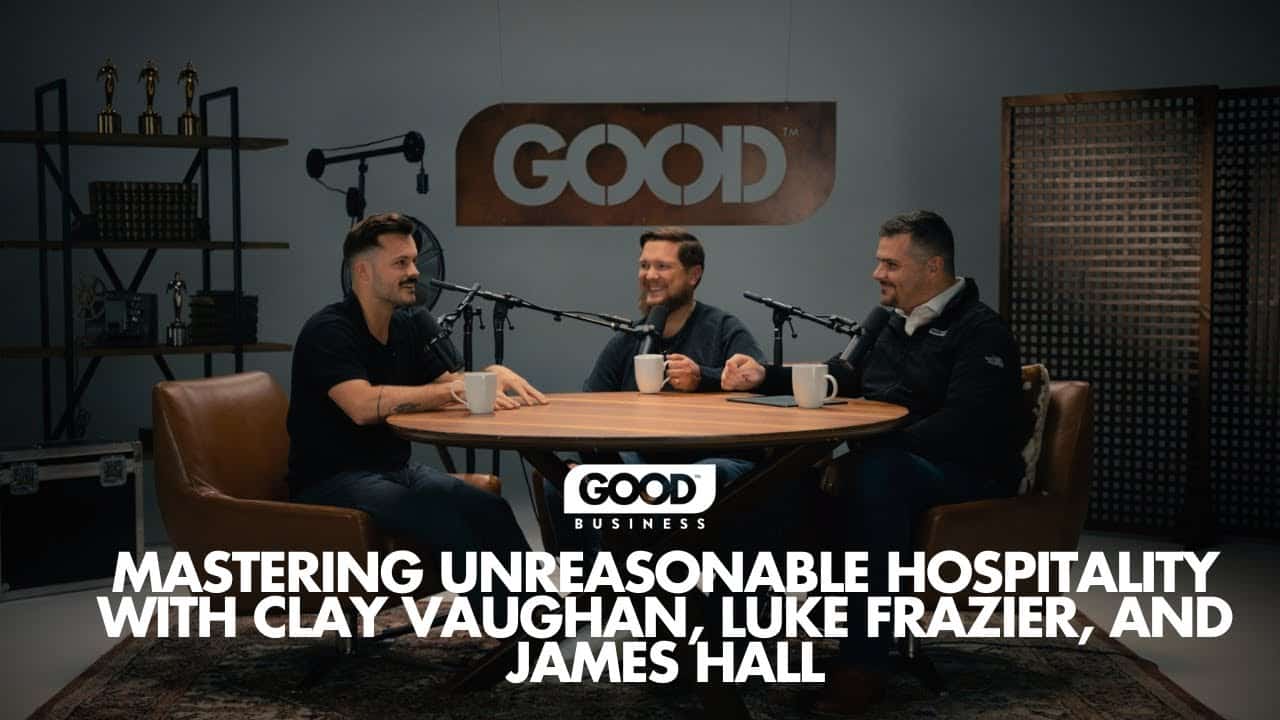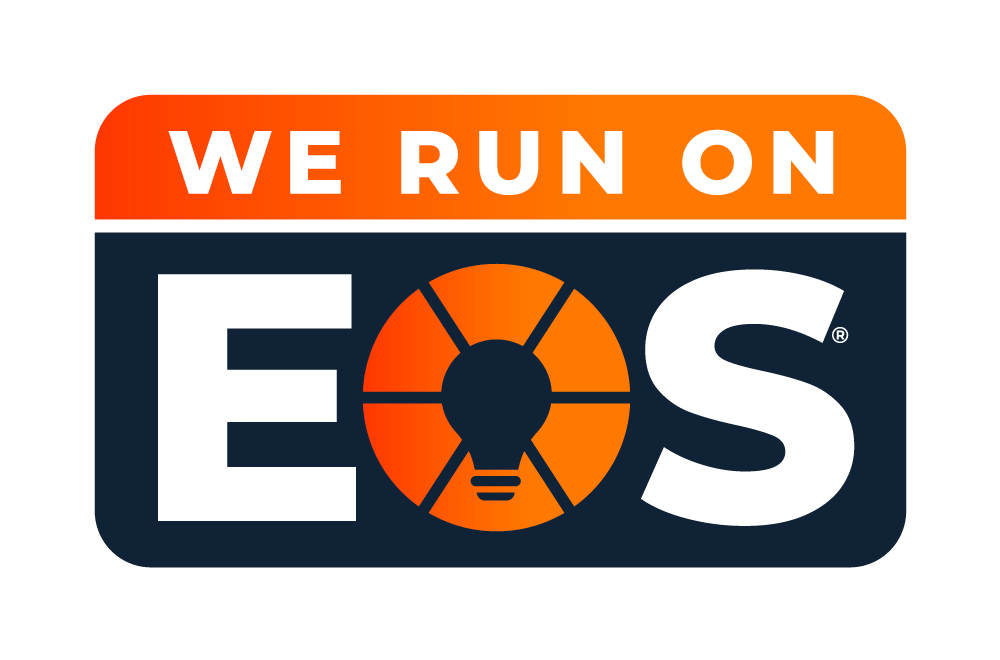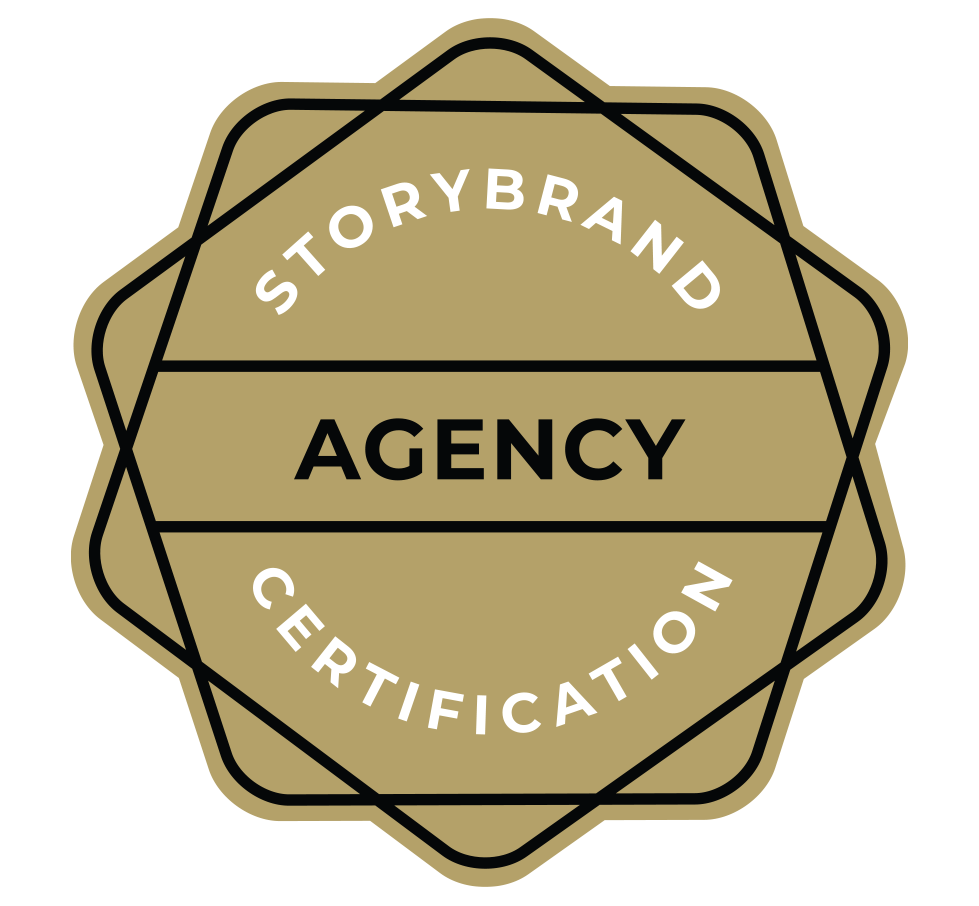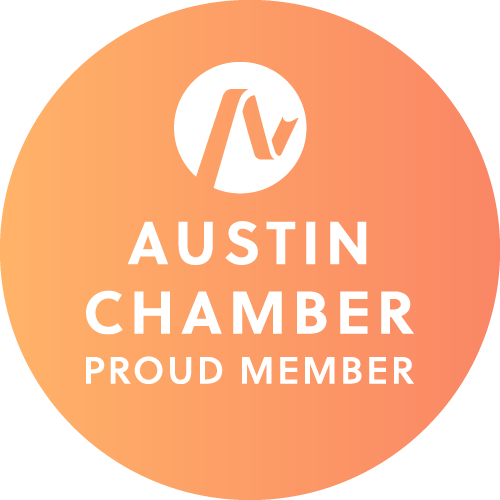
Mastering Unreasonable Hospitality with Luke Frazier, James Hall and Clay Vaughan
Luke Frazier
Growth Strategist | Good Agency
In this episode of the Good Business podcast, host Clay Vaughan engages in a lively discussion with Luke Frazier (Growth Strategist at Good Agency) and James Hall (COO at Good Agency) about the concept of unreasonable hospitality in business. They delve into how businesses can exceed expectations, build meaningful relationships with clients, foster a caring company culture, and create memorable customer experiences that stand out even in a technologically driven world.
Connect with Luke
Hospitality is… gonna be the future…intentionality, personal connection,… relationship building, that is the future. You may not be able to get on the golf course with anybody anymore. You may not be able to fly across the country to meet with someone in person, but you can still show that you care… That’s how you’re gonna win those clients and build those relationships that matter.
CLAY VAUGHAN
Show Notes
What We Talked About
This episode of the Good Business podcast focuses on the concept of unreasonable hospitality and how businesses can harness it to create exceptional client and team experiences. Drawing inspiration from Will Guidara’s book “Unreasonable Hospitality,” Clay, Luke, and James discuss how going above and beyond—whether with clients, team members, or stakeholders—can create a culture of care and generosity. They explore practical ways to show genuine hospitality, from thoughtful gifts to actively listening and responding to clients’ needs, and discuss the return on investment of implementing hospitality as a core value in any organization.
Key Moments
[00:00] Introduction to the concept of unreasonable hospitality and its relevance to modern business.
[07:20] Luke Frazier’s perspective on incorporating hospitality into a company’s culture and operations.
[11:45] James Hall explains how listening to clients’ and employees’ personal interests can guide acts of hospitality.
[15:22] Discussion on the ROI of unreasonable hospitality, with examples of boosting sales and referrals.
[19:35] The team shares concrete examples of how Good Agency has employed hospitality to exceed client expectations.
[25:10] How hospitality affects team morale, retention, and overall company culture.
[30:33] Practical steps for businesses to incorporate hospitality into their daily operations and client interactions.
[35:49] The future of business in a digital age and how personal connection and care can be a differentiator.
[42:15] Final thoughts on the importance of making hospitality a core part of a company’s values and practices.
Want More?
For those interested in learning more about how to implement strategies of unreasonable hospitality within their organizations, check out these resources:
- Will Guidara’s Book “Unreasonable Hospitality”: Explore this book to gain deeper insights into transforming ordinary transactions into memorable experiences.
- Good Agency’s Blog and Resources: At GoodAgency.com, discover more articles, podcasts, and tools aimed at helping businesses integrate hospitality into their culture and operations.
Whether you’re a business leader looking to enhance customer experiences or a team member seeking to foster a more caring environment at work, these resources will guide you through creating lasting impressions through genuine hospitality.
Want more Good Content?
Click below to get all the episodes, answers, and good tips on the Good Business podcast.
About
Good Business | Clay Vaughan
This episode is a must-listen for business leaders and entrepreneurs looking to cultivate a culture of genuine hospitality that exceeds expectations and builds meaningful relationships. The Good Business Podcast, hosted by Clay Vaughan, offers actionable insights into blending profitability with genuine care and hospitality. If you’re interested in mastering the art of making your clients and team members feel truly valued, this episode—and the Good Business Podcast—provide the tools and inspiration you need to revolutionize your approach.




